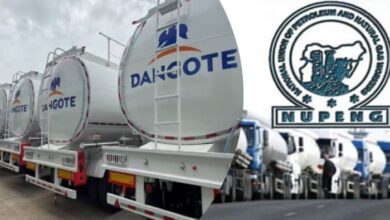Tackling out-of-school children challenge through digital learning platforms
 By Victor Adeoti
By Victor Adeoti
Access to quality basic education is the right yet the number of out-of-school children across the world is on the rise. The situation is more worrisome in sub-Saharan Africa with Nigeria as the main culprit.
According to the World Bank, Nigeria, in 2020, had no fewer than 11 million out-of-school children between the ages of 6 and 15.
This figure represents 1 in 12 of all out-of-school children globally and 22 per cent of all children in that age group in Nigeria.
In October 2022 UNESCO put the figure at 20 million children.
Although, there has been different programmes by the Federal and State Governments to minimise the number of out-of-school children the problem persists.
In 2020, the federal government said it committed N220 billion, a credit facility from the World Bank, to the Better Education Service Delivery for All (BEDSA) in 17 states of the federation.
The cardinal objective of the BEDSA programme, according to officials is to “increase equitable access for out-of-school children, improve literacy and strengthen accountability at the basic education level.
The BEDSA programme has been around since 2018 and has reportedly facilitated the enrolment of one million out-of-school children.
Also, UBEC introduced the Open School Programme (OSP) in 2020 to mop-up out-of-school children with the flagship in six states in Nigeria.
Hameed Bobboyi, Executive Secretary of the commission described OSP as a “flexible education system that allows learners to learn where they are and when they want, away from conventional schools and teachers.
In spite of these programmes and strategies deployed by the federal government to address the challenge the number has continued to increase.
Stakeholders in education sector are, however, of the opinion that digital learning platforms are veritable avenue to explore to address the challenge posed by out-of-school children in Nigeria.
One such platform is Nigeria Learning Passport, an online e-learning platform with mobile and offline capabilities that enables continuous access to quality education
The platform was inaugurated on March 22, 2022 to provide continuous education to 3 million learners in 2022 alone.
The number is expected to rise to 12 million by 2025.The Nigerian Learning Passport is designed for pre-primary, primary and secondary school learning.
Children, youth, and teachers can access a digitalised curriculum providing learning materials in all core curriculum subjects for primary one to six and up to Junior and Senior Secondary School levels.
“Before COVID-19, about 10.5 million Nigerian children aged between 5 and 14 were not in school.
“Today in Nigeria, more than 9.7 million children are at risk of never returning to school, their learning left behind.
“The Learning Passport can help change that.
“By offering simple, easy, and fun ways to learn, as well as tailor-made training programmes, the Learning Passport will help respond to the needs of every child.
“With online, offline, and mobile options, it can help us reach the most vulnerable and marginalized learners,” said Catherine Russell, UNICEF’s Executive Director, in a goodwill message at the launch in Abuja.
UNICEF in collaboration with the National Orientation Agency (NOA), Lagos office organised a two-day workshop for young people and journalists drawn from across the country as part of efforts to raise awareness on digital learning platforms.
Speaking at the workshop with the theme: “Dialogue on Digital Learning Platforms“, Mrs Blessing Ejiofor, UNICEF Communication Specialist, urged youths to leverage digital learning platforms to develop their skills and boost their chances of being gainfully employed.
Dr. Adejare Afolabi, Director, Policy/Planning/Research and Statistics, Ministry of Education, Lagos State, said the state was ready to capitalise on the platform provided by UNICEF to reduce the challenge posed by ‘out- of-school children’ in the rural communities in the state.
“We are leveraging on the existing NLP, an online/offline platform designed to complement the existing system of imparting knowledge and learning. It is an initiative of federal and state governments in partnership with UNICEF.
“We have a number of out-of-school children, and some who are slow in assimilation. So, this platform will help them listen, watch, learn and understand better what they are being taught in the classroom.
“It is a complimentary platform used to boost the normal traditional learning system which we are using to reduce and address such issues”, he said.
Speaking on the overview of Youth Employment, Skilling, and Upskilling in Nigeria, Mrs Taiye Tunkarimu, Head of Communications, Lagos State Employment Trust Fund (LSETF), said that the organisation used digital grassroots programmes to create wealth, especially for the youths.
According to her, the Fund developed a digital grassroots programme with UNICEF to train traders on to use digital platforms to promote their businesses.
“We enable job and wealth creation in Lagos State through access to finance, access to infrastructure/vocational skills training, access to market as well as business support.
“UNICEF is our partner and we have done a couple of training and engagements with them, including the digital literacy programme to train people at the grassroots“, she said.
Also, Joannes Yimbesalu, Programme Specialist, UNICEF, who spoke on ‘Youth Agency Market Place (YOMA), described YOMA as a digital platform created by young people which allows them to build and transform their futures.
Yimbesalu said that 87 per cent of Yoma users globally were Nigerian youths.
He said this gave them the opportunity to participate in learning, and carrying out activities that impact positively on the society.
“As they engage in these opportunities, they earn tokens which they can use to redeem on the Yoma marketplace for data and airtime and access to premium courses”, he said.
Yimbesalu said that UNICEF is partnering with the government and private sector to give young people the capacity to build and transform their futures and be productive citizens.
“We are passionate about young people and giving them the platform across Africa to be employable and the key thing is promoting opportunities for these people.
“We need to create this awareness more to promote the opportunity including in the rural communities, to enable them to be aware and access the opportunities for employment.
“One of the key things is about targeting the most marginalised, and the focus is working with key stakeholders and the media to ensure that no child is left behind,” he said.
In her remarks, the NOA Director in Lagos, Ms Adetola Adegboyega, said that the training was important due to the place of technology in our daily lives.
Adegboyega, who said that journalists were an important aspect of the training, urged them to properly disseminate information on the opportunities offered by digital learning platforms.
Experts say that if properly harnessed digital learning platforms will go a long way in helping the country to drastically reduce the number of out-of-school children in Nigeria.
They say it also has the potential to positively change lives those who use them.
News Agency of Nigeria. (NAN)











